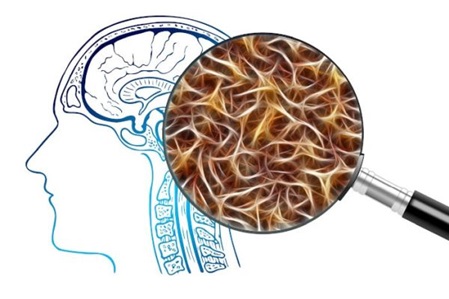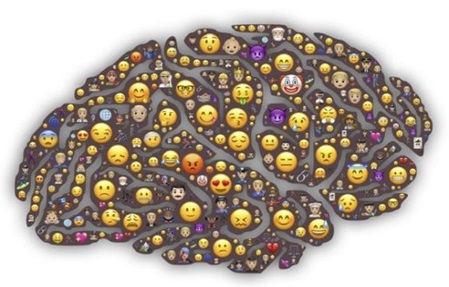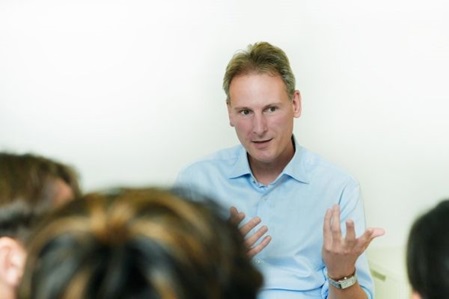De-Biasing - developing effective measures against unconscious biases
Long lasting and deeply embedded thinking patterns limit us in our activities and lead to flawed decisions. For us. In our team. In our organisation.
Your thinking patterns - are you aware how they work?
Your thinking errors - do you know them?
Your unconscious biases - which of them are clear to you?
Error-free action leads to optimal results.
Every activity that supports in this direction enhances the quality and effectiveness of decisions and their implementation.
- Learn to know your thinking errors and unconscious biases
- Experience how they operate and what they cause
- Develop your individual de-biasing toolbox in order to manage their negative effects
You benefit from this in different ways: you think clearer, you decide
more consciously and you implement more effectively.
On the following pages you will learn more about this fascinating phenomenon and which de-biasing options are available

Find out all about currently available public workshops - the easiest way to experience de-biasing live!
De-Biasing - Understanding our thinking patterns and unconscious biases better - and taking action
Today's world means new challenges for our brain
We live in a dynamic, strongly connected and hence more complex world.
The
acceleration, intensification and higher requirements result from the
development over the last 200 years. However, our brain originates from a
time where all these topics were irrelevant.
Intense research around the fascinating topic "how does our brain operate" has proven impressively that:
- our brain performs even better than we previously thought of;
- we understand its operating mode more and more, due to modern research methods;
- our brain works extremely efficient via filtering information strongly and via working with various patterns;
- our daily behavior and our decisions are impacted massively by these patterns;
- our brain uses multiple short-cuts, however cannot differentiate between important and irrelevant information.
Key is that all these processes operate unconsciously, so we are not aware of them!
Knowing "system 1" and "system 2" of our brain - and learning to switch consciously
„System 1“ - our autopilot runs perfectly for simple tasks
Nobel Prize winner Daniel Kahneman has used the term "system 1" for the unconscious, fast, automatic and intuitive functioning of our brain. This autopilot takes care of almost all decisions, however it works flawlessly only in a simple context with low complexity.
„System 2“ - complex questions and tasks need conscious activation
Complex situations need a different approach. Hence, our brain is able to
operate in a logical, slow and analytical mode (which is called "system 2" by
Kahneman).
We tend to identify ourselves strongly with this part of our
thinking, i.e. the ratio. However, research has proven that we activate this
system 2 significantly less often as it consumes a lot of energy and tires
quickly.
Develop your competence to activate system 2 when it really counts!
We decide rationally - but less often than we think
Our autopilot leads us through life accurately most of the time - however, we need to consider the following elements:
- Our perception, judgement and decisions can work decidedly against our ratio or our self-perception without us noticing.
- These distortions are called "unconscious biases" or "cognitive biases".
- These biases are systematic and predictable, they are deeply embedded in our thinking patterns.
- We all have different unconscious biases which are pronounced differently for each person.
- The consequences of our biases relate to the context (i.e. how problematic is it to make mistakes) and not the subject per se - it is not possible to willingly turn our biases off.
Unconscious biases - the considerable requirements in teams and on leaders reinforce them
The continuously growing flood of information, time pressure, more uncertainty and multitasking reinforce this phenomenon massively.
Cognitive biases work manifold - individually, in teams, in organisations
Biases work on the individual level, interpersonally as well as in teams and
organisations.
Around 200 different biases have been identified so far, they
impact our life on daily basis.
Consciousness and clarity for self control and self steering
On the individual level we are affected in the areas of perception (i.e. what is my reality), judgement and decisions. We all have the choice to deal with our highly personal imprinting, thinking patters and prejudices, hence with the foundations of our biases. The more consciousness and clarity we create, the more we take control and steering as well as responsibility for ourselves. "Know thyselves!" has been one of the central themes in the Greek ancient world for a reason.
The second highly relevant aspect in times of digitalisation concerns our permanent confrontation with commercial interests of all kind. Companies invest a lot of efforts to understand our behavior and decisions better, our biases play a role here as well.
Unconscious biases create costs and failure in companies and organisations
In the context of teams, businesses and organisations biases have a significant effect as well. Studies and surveys (for instance from McKinsey or the Economist Intelligence Unit) have shown that:
- only 28%of the participating business leaders evaluate the strategic decisions of their company as good;
- at the vast majority of corporate decisions intuition is used more in judgement than data and facts;
- most business leaders believe that their employees prefer easily accessible Information.
Unconscious biases and the following wrong decisions can impact heavily:
- strategically - for example in strategy creation, wrong investment decisions, competitor evaluations…
- culturally - for instance when recruiting, promoting or retaining the right employees, in living diversity, in ethical issues…
- financially - for example in pricing policies, wrong resource allocation, performance evaluation…

Biases are expensive, biases are avoidable.
Clear thinking, conscious decisions and effective implementation are prerequisites for personal and business success.
The de-biasing concept of Mind your business is modular - together we develop the measures that really work.
De-Biasing - take measures to reduce unconscious biases specifically and individually
Wikipedia includes the following definition of de-biasing*:"Debiasing is the reduction of bias, particularly with respect to judgment and decision making. Biased judgment and decision making is that which systematically deviates from the prescriptions of objective standards such as facts, logic, and rational behavior or prescriptive norms."
It is an area in the discipline of behavioral economics which has established itself as new scientific discipline in the recent decades - reinforced by granted Nobel prizes to D. Kahneman or R. Thaler.
*Sometimes the term is spelled "debiasing" - these quotes are left with their original spelling.
De-biasing needs individual and specific measures
Unconscious biases are deeply rooted both on the individual level and in corporate cultures and processes. They easily create "blind spots", in particular in the core area of a business. From this follows that thinking errors and distorted perceptions pose a significant risk for success, in the worst case for the continuation of an organisation.
Consequently, specific and individual measures are needed which are defined depending on the context, the business model and connected decision processes. A standard training, regardless of being conducted in person or online, cannot be more than an introduction into the subject - it is no solution yet of the underlying factor!
De-biasing - practical, relevant and individual for you
Mind your business is based on practice in companies.
Accordingly, de-biasing measures are also necessary in terms of relevant and implementable solutions. Mind your business supports you in finding a suitable package - for you, for your team or your organisation.
The concept comprises several stages and can be applied individually - because unconscious biases also have a highly individual effect!
De-biasing gives you clear advantages in these areas:
Mind your thinking
- You know your unconscious biases better and know which patterns impact you.
- You define specific measures in order to deal with your thinking errors.
- Your judgement improves as you use your system 2 more when needed.
Mind your decisions
- You know when you need to activate system 2, hence decide more consciously.
- You decide fast and slow, depending on the context.
- You achieve your objectives easier as you decide better.
Mind your implementation
- You utilise your personal de-biasing toolbox on regular basis and achieve better individual and professional results.
- You implement more effectively as you assess progression and success in a less biased way.
- You take leadership in your team and your organisation and hence strengthen the impact of your new competences.




